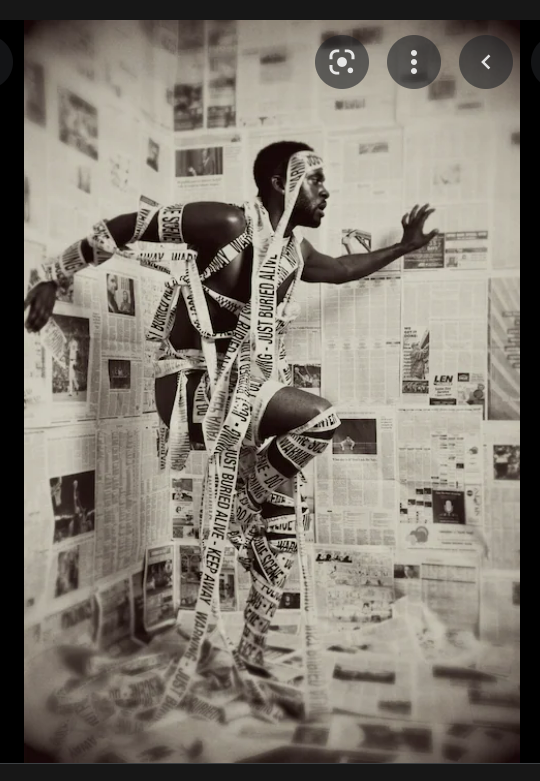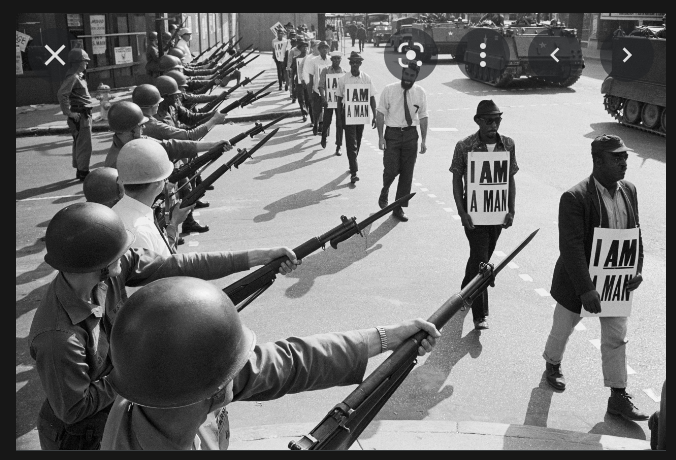Often, it tends to be enough to change the perspective in order to achieve a greater understanding. Growing up as a White woman, I had not experienced racism and racial discrimination to the extent showcased in fig. 1 or fig. 2:


Indeed, I can attempt to imagine what it is like to be there personally, but that is not the feeling that invokes concern and fear in the given case. What does, however, is imagining my child being subjected to such a horrifying attitude. Parental love belongs to rare, genuinely unconditioned feelings where there is no space for racism in any of its forms. Unfortunately, I cannot fight every individual case of racial discrimination. Nevertheless, I feel obliged to fight its systemic manifestations, such as racial profiling. If set loose, it can affect both the present and, most importantly, the future of my and every other child representing the racial minority.
Racial Profiling Manifestations
The issue of racial discrimination has a long and ugly history. For instance, Fig. 2 illustrates the sanitation workers’ strike that took place on February 12, 1968, in Memphis, Tennessee. It began a few days after Echol Cole and Robert Walker – Memphis sanitation workers – were crushed to death while working by their garbage truck (Gailani). For many people, the accident revealed how dangerous the job conditions really were. However, the payment for it was definitely not enough to justify the danger. Moreover, the situation of Black sanitation workers was even worse due to racial bias still ubiquitous at the time of the accident (Gailani). People desired change for a long time, but the accident served as a sparkle that ignited the fire. The phrase “I Am a Man” depicted on men’s chests conveys the main message behind the striker’s actions – a desire to be treated equally.
Unfortunately, their desire has yet to be completely fulfilled even today. The issues caused by racial discrimination occur almost in every area of modern society. For instance, after Marvin Joseph – the Washington Post staff photographer – was tasked to visualize racism, he quickly came up with an idea of depicting the law enforcement topic (Joseph). Currently, the cases of death of African Americans at the hands of law enforcement are frighteningly common (Joseph). Therefore, fig. 1 illustrates the crime scene footage, where the main infraction is skin color.
Compared to broader terms of racial discrimination and racism, racial profiling tends to have a more organized and systematic nature. According to Schclarek Mulinari and Keskinen, it can be defined as selective, racializing practices that instill and establish societal hierarchies through the targeting of particular populations based on their race, ethnicity, national identity, or religion (379). Racial profiling itself is an overarching term that can manifest in many ways and affect people regardless of their age, which implies it affects children as well.
However, the adverse effects of racial profiling on youth are far worse than on the adult population. In the context of fig. 1, it robs children of faith in the public security sector. In turn, while the context of fig. 2 presents the issue of discrimination at work, racial profiling in the education sector – an activity that is analogical to work but is more appropriate considering children – endangers their cognition and affects socialization. Finally, the failure of the youth protection welfare – often the last resort in a desire for protection – can ultimately lead to devastating consequences.
The Public Security Sector
Law enforcement agencies and police officers play a fundamental role in protecting the public and preventing criminality. In this context, racial profiling undermines confidence and trust in government institutions among the population in general and racialized groups in particular. People from racialized communities cannot enjoy the same freedoms as the rest of the population, including having fun, circulating, or getting together with other racialized youth. Consequently, they might feel they are on society’s margin due to being scrutinized and targeted when they occupy public spaces. The most revolting notion is that, despite being born in the U.S., young people are excluded and feel like undesirables in their society.
The Education Sector
Racial profiling in the education sector is particularly sustained by the assumption – unconscious in many cases – that certain racialized groups, and especially young Blacks, are more likely to threaten security or disturb order within a school. Since they are deemed to be at greater risk of adopting anti-social behaviors, racialized minority youths receive more intense scrutiny by school personnel than other students. Consequently, based on this disproportionate scrutiny and given the same behavior, racialized students tend to be more likely penalized for violating rules that are, apart from everything else, applied to them more severely. As a result, the discriminatory punishments for security reasons and the application of codes of conduct in school directly relate to the problem of school drop-outs and failures among youth from racialized minorities.
The Youth Protection System
Racial bias and discrimination in systems responsible for protection can be considered the most appalling. In this context, racial profiling occurs at a different level compared to the previous two. According to recent studies, Black youths are less often the object of protection measures, such as withdrawal from the family, than Whites and other racialized minorities (Keddell 8). The possible conclusion might be that there exists an attitude unfavorable to Black youths in identifying situations where the child’s rights are truly at risk among professionals in the social services sector. Thus, children experience prolonged exposure to traumatizing circumstances that might eventually affect their mental well-being.
Potential Counter Arguments
One might argue that, in terms of public security, racial profiling is confused with criminal profiling – an important activity in police investigations. However, racial profiling is easily distinguishable from the latter, which is not based on biases but instead relies on actual behavior or information about an individual’s suspicious activity (Coleman and Kocher 1187). In other words, criminal profiling is not the same since it is based on objective evidence of wrongful behavior. In contrast, racial profiling is based on stereotypical and biased assumptions. For instance, such are the cases of harassing and abusive police scrutiny of racialized individuals or disproportionate police resources deployment in the neighborhoods they frequent.
In the education sector, many forms of discrimination cannot be directly attributed to racial profiling as such. For example, measures, decisions, or organizational policies determining the student’s educational path result from systemic discrimination, not racial profiling (Desai 1037). However, the issues of racial discrimination do tend to intertwine in their overarching influence on society. Therefore, the debate regarding the true nature and racism classification seems unnecessary and unhelpful in the given case.
Conclusion
Through its manifestations at various societal levels, racial profiling adversely impacts the lives of children, which robs them of their happy present and a successful future. Due to profiling occurring in the public security and youth protection sectors, children might lose trust in institutes created to protect them. In turn, biased attitudes in the education sector can directly rob them of their chance of finding their place in society. I believe it is my duty to ensure that my son has all the possibilities to realize his potential. I only wish that every person will be able to apply the same genuine and unconditional attitude when it comes to treating other people.
Works Cited
Coleman, Mat, and Austin Kocher. “Rethinking the ‘Gold Standard’ of Racial Profiling: § 287 (g), Secure Communities and Racially Discrepant Police Power.” American Behavioral Scientist, vol. 63, no. 9, 2019, pp. 1185-1220. Web.
Desai, Shiv R. “Humanizing Trayvon Martin: Racial Profiling, Implicit Biases, and Teacher Education.” Urban Education, vol. 54, no. 8, 2019, pp. 1031-1057. Web.
Gailani, Matthew. “‘I Am A Man’ Dr. King and The Memphis Sanitation Workers’ Strike.” Tennessee State Muzeum, Web.
Joseph, Marvin et al., editors. “Visualizing Racism: Nine Photographers Take on the Challenge of Depicting Bigotry.” The Washington Post Magazine, Web.
Keddell, Emily. “Algorithmic Justice in Child Protection: Statistical Fairness, Social Justice and the Implications for Practice.” Social Sciences, vol. 8, no. 10, 2019, pp. 1-22. Web.
Schclarek Mulinari, Leandro, and Suvi Keskinen. “Racial Profiling in the Racial Welfare State: Examining the Order of Policing in the Nordic Region.” Theoretical criminology, vol. 26, no. 3, 2022, pp. 377-395.